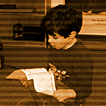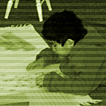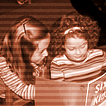 H
I S T O R Y: H
I S T O R Y:
The PEASS program grew out of
twenty years of experience at The Whitby School in
Greenwich, Connecticut. I chose
Montessori education for a number of reasons. First of
all, the teachers are often able to be flexible in their
choices to make special accommodations for students.
They are eager to facilitate learning through a variety
of methods and materials and are trained to be keen observers.
Secondly, the boundaries of the classrooms are wide so
parents choose Montessori schools because they sense
that their children, who may need a different approach
to education, may thrive there. Montessori classrooms
are often a laboratory of diverse educational profiles.
The need to enhance the Montessori Method with a program
to accommodate various learning profiles was evident
to me in 1983.
 Lastly,
I believe in the Montessori philosophy. Maria Montessori
was a pioneering scientist who advanced
a precise, scientifically based theory that has stood
the test of time, decade after decade. Her work at the
turn of the century is at the foundation of other developmental
theories including those of Erik Erickson and later,
Jean Piaget. “Modern research in psychology suggests
that the Montessori system is much more suited to how
children learn and develop than the traditional system.” Lastly,
I believe in the Montessori philosophy. Maria Montessori
was a pioneering scientist who advanced
a precise, scientifically based theory that has stood
the test of time, decade after decade. Her work at the
turn of the century is at the foundation of other developmental
theories including those of Erik Erickson and later,
Jean Piaget. “Modern research in psychology suggests
that the Montessori system is much more suited to how
children learn and develop than the traditional system.”
(Lillard, Montessori:
The Science Behind the Genius. 2005)
"Let
no child be demeaned, nor have his wonder diminished, because
of our ignorance or inactivity."
The PEASS program was designed
for Montessori schools as a systematic way to identify
signs of risk for learning
differences. It includes a multidisciplinary team of learning specialists,
neuropsychologists, psychologists and psychiatrists; social
workers, occupational therapists and speech/language pathologists
to supplement the observations of classroom teachers.
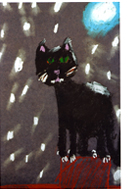 The
establishment of a network of professionals in each specific
school district is essential and considered a priority. Depending
on the size of a school, a team of one or more professionals
can be hired to implement the program. A Learning Specialist
trained in the Orton Gillingham method or the Wilson Program
is necessary to initiate the program. Hiring professionals
such as a speech/language pathologist or an occupational therapist
on a consulting basis to observe individuals in a classroom
setting or to collaborate with teachers is often an attractive
option for some schools. The
establishment of a network of professionals in each specific
school district is essential and considered a priority. Depending
on the size of a school, a team of one or more professionals
can be hired to implement the program. A Learning Specialist
trained in the Orton Gillingham method or the Wilson Program
is necessary to initiate the program. Hiring professionals
such as a speech/language pathologist or an occupational therapist
on a consulting basis to observe individuals in a classroom
setting or to collaborate with teachers is often an attractive
option for some schools.
"Let
no child be deprived of discovery, because we lack the
resources to discover her problem."
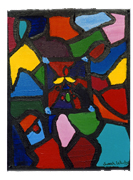
According
to Dr. Melvin Levine’s theory, “each
student possesses a unique profile of neurodevelopmental
functions that are highly interactive as they collaborate
in all behavioral
and cognitive actions. Highly specific subskills are contained
within each neurodevelopmental construct.
Dr. Levine’s theory
posits eight neurodevelopmental constructs:
• Attention
• Language
• Spatial Ordering
• Higher Order Cognition |
|
• Memory
• Neuromotor Functions
• Temporal Sequential
Ordering
• Social Cognition |
A
dysfunction can exist in one or more of the requisite functions
manifesting
itself in a specific learning difference.”
(M. Levine, M.D., Developmental Variation and Learning
Disorders.
1998)
"Let
no child ever doubt himself or his mind because we
are unsure of our commitment"
P R O C E D U R E:
The sequence of the PEASS program begins with a basic understanding
of Dr. Levine’s neurodevelopmental constructs. Staff
Development includes a thorough investigation of Dr. Levine’s
theory and its application to all levels of the school.
Performance assessment observation notes are tailored to
meet the needs
of individual schools. Once the teachers are well versed
in neurodevelopmental theory, individual student profiles
can
be collected over time and intervention programs can be
planned.
The program sequence looks like this:
 Teacher training Teacher training
Observation
Daily teacher assessments
Learning Specialist by request
Documentation
Systematic performance assessment
Collaboration
School
Home
Intervention
Classroom modifications
Individual tutorial
Referral to local professionals
PEASS services include the design of individualized tutorial
programs and private consultations with schools and families.
BACK TO TOP |


